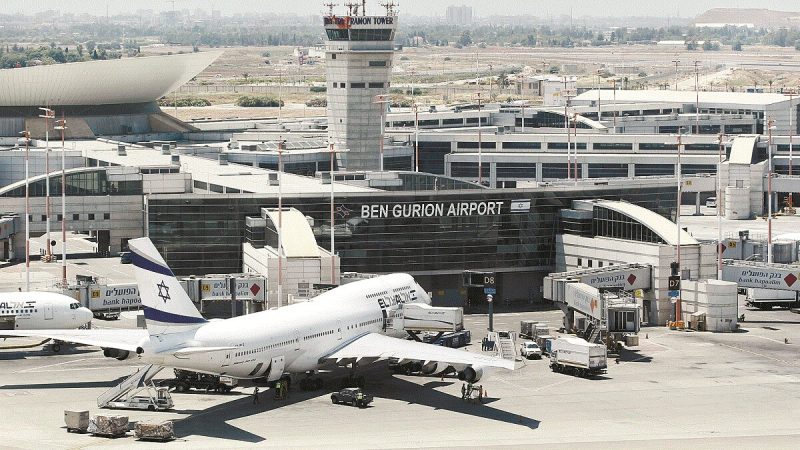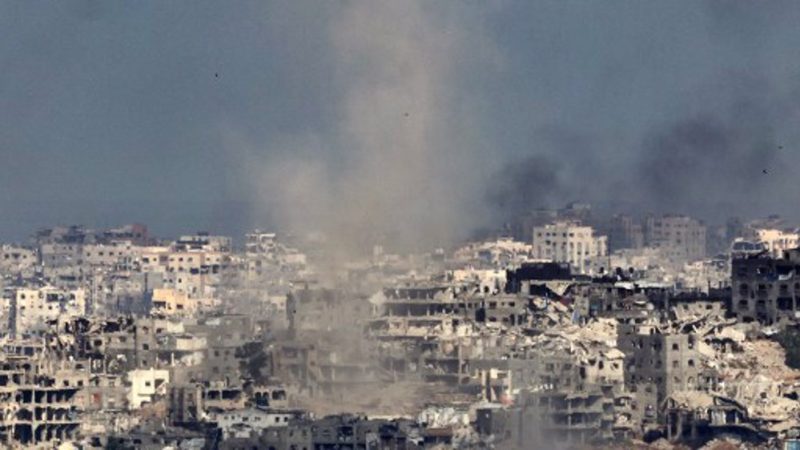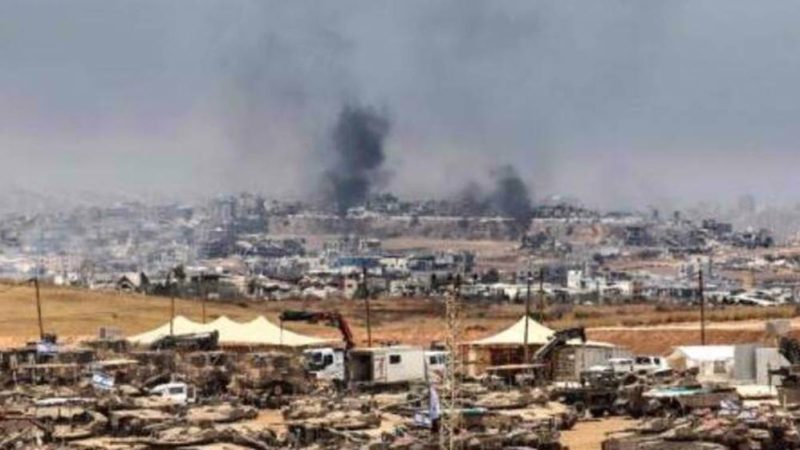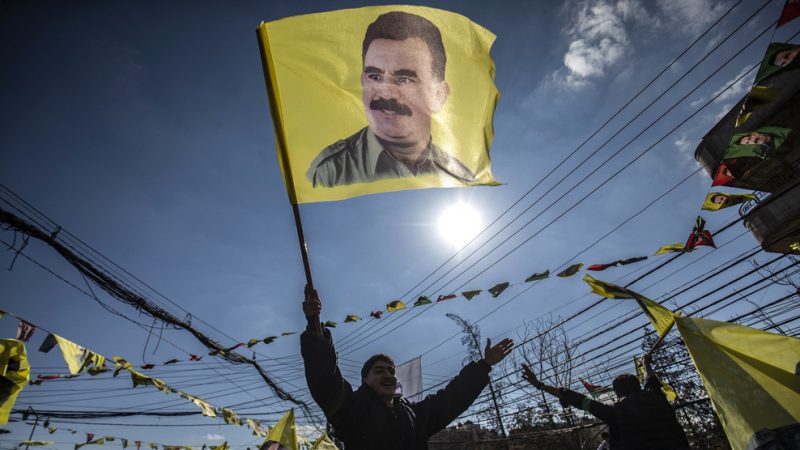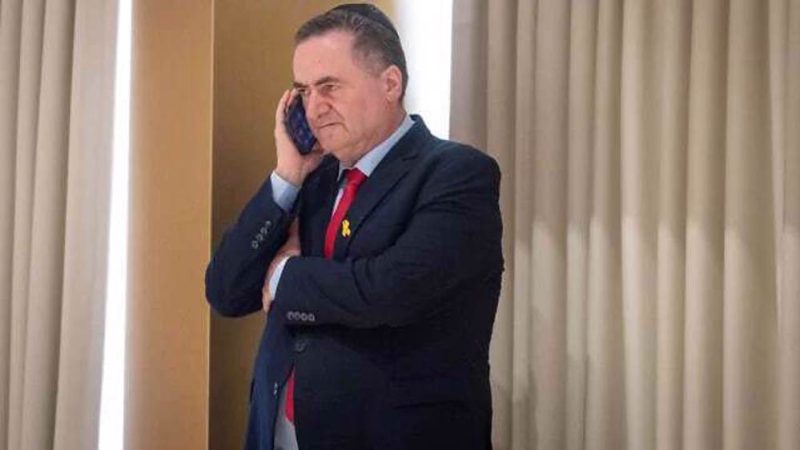EU to reassess relations with Israel amid ongoing genocide, aid crisis in Gaza
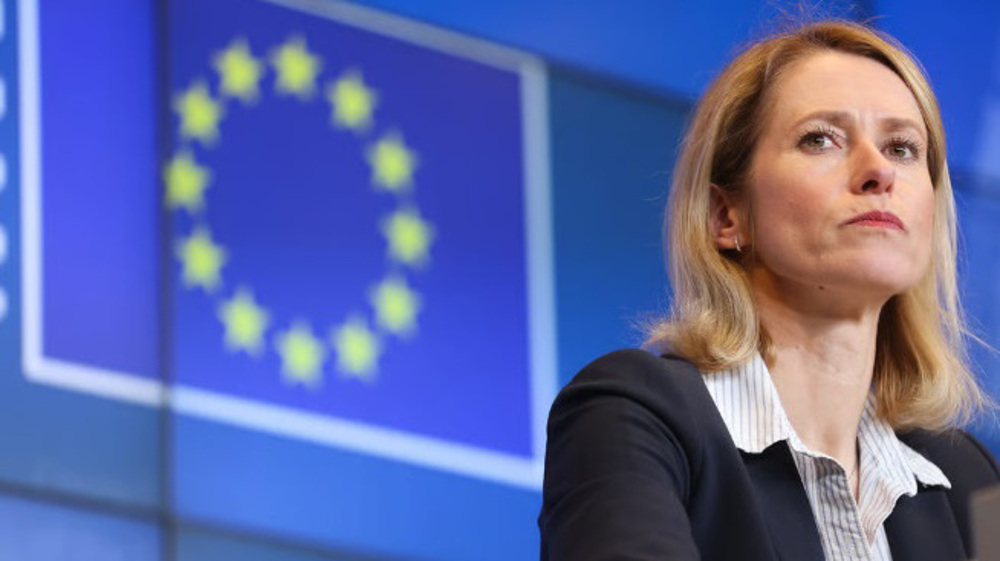
The European Union has taken a first formal step towards reassessing its political and economic relationship with the Israeli regime amid Tel Aviv’s ongoing war of genocide on the Gaza Strip and its near-total restriction of humanitarian aid into the Palestinian territory.
At a high-level meeting in Brussels on Tuesday, EU foreign ministers discussed the ongoing crisis in Gaza.
The bloc’s foreign affairs chief Kaja Kallas then confirmed that the European Commission would begin examining the so-called “Association Agreement” that governs bilateral relations between the union and the regime.
‘Aid flow into Gaza drop in the ocean’
Kallas said a limited amount of humanitarian aid had recently been allowed into the territory following weeks of escalated blockade, but described the aid flow as “a drop in the ocean.”
“It is European money funding this aid, and it must reach the people,” the official added.
The development came as the regime has significantly stepped up its October 2023-present genocide against Gaza, particularly during intensified military assaults on Rafah in the southern part of the territory.
The heightened deadly aggression has forced tens of thousands to flee, obliterated critical infrastructures, and left the health and humanitarian systems on the brink of collapse across the already severely impoverished coastal sliver.
The United Nations has indicated that roughly 500 aid and commercial trucks are needed daily to address basic needs in Gaza. Yet, only around 100 trucks were reportedly permitted to cross into the territory earlier this week.
Human rights groups have defined the strategy as deployment of starvation and blockade as tools of warfare.
Across the EU, member states such as Spain, Ireland, Belgium, and France, have announced opposition to the atrocities, with Spanish Foreign Minister José Manuel Albares calling explicitly for sanctions against the regime.
Spain approves halt to arms sales to Israel
The Spanish Parliament has also approved a motion to halt all arms sales to Tel Aviv, following Prime Minister Pedro Sánchez’s declaration that “Spain will not do business with a genocidal state.”
The Popular Front for the Liberation of Palestine (PFLP) organization welcomed the move, urging other global parliaments to adopt similar measures and calling for broader sanctions and isolation of a “genocidal pariah entity.”
Additionally, leaders of France, the UK, and Canada have issued a joint statement, condemning the regime’s aggression in Gaza, and defining its aid restrictions as “wholly disproportionate.”
They warned of “further concrete actions” should the situation not improve, though no specifics were offered.
Sustained pro-Israeli lean within EU
Despite the pending review, the bloc remains divided.
Germany, Austria, Hungary, and the Czech Republic continue to align closely with the Israeli regime, citing so-called “security concerns” and “historical ties.”
Hugh Lovatt of the European Council on Foreign Relations criticized, what he identified as, the EU’s longstanding “double standard” in applying the international law to the regime, noting how political inclinations on the part of some member states had historically shielded Tel Aviv from accountability.
Former EU ambassador James Moran, now with the Centre for European Policy Studies, also warned that internal divisions had left the EU “politically paralyzed” in its dealings with the regime.

